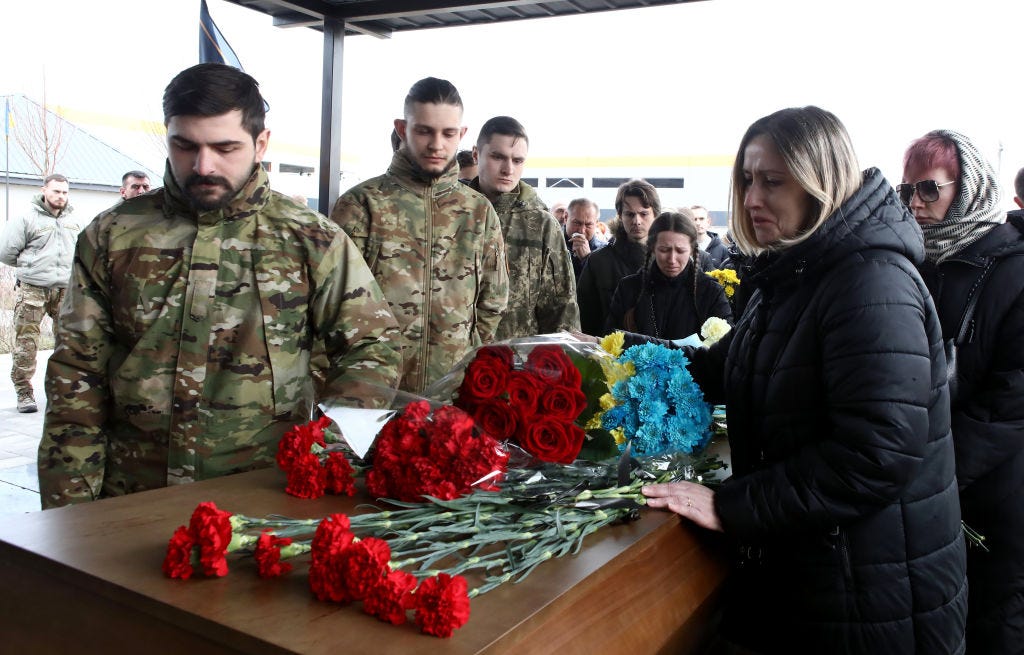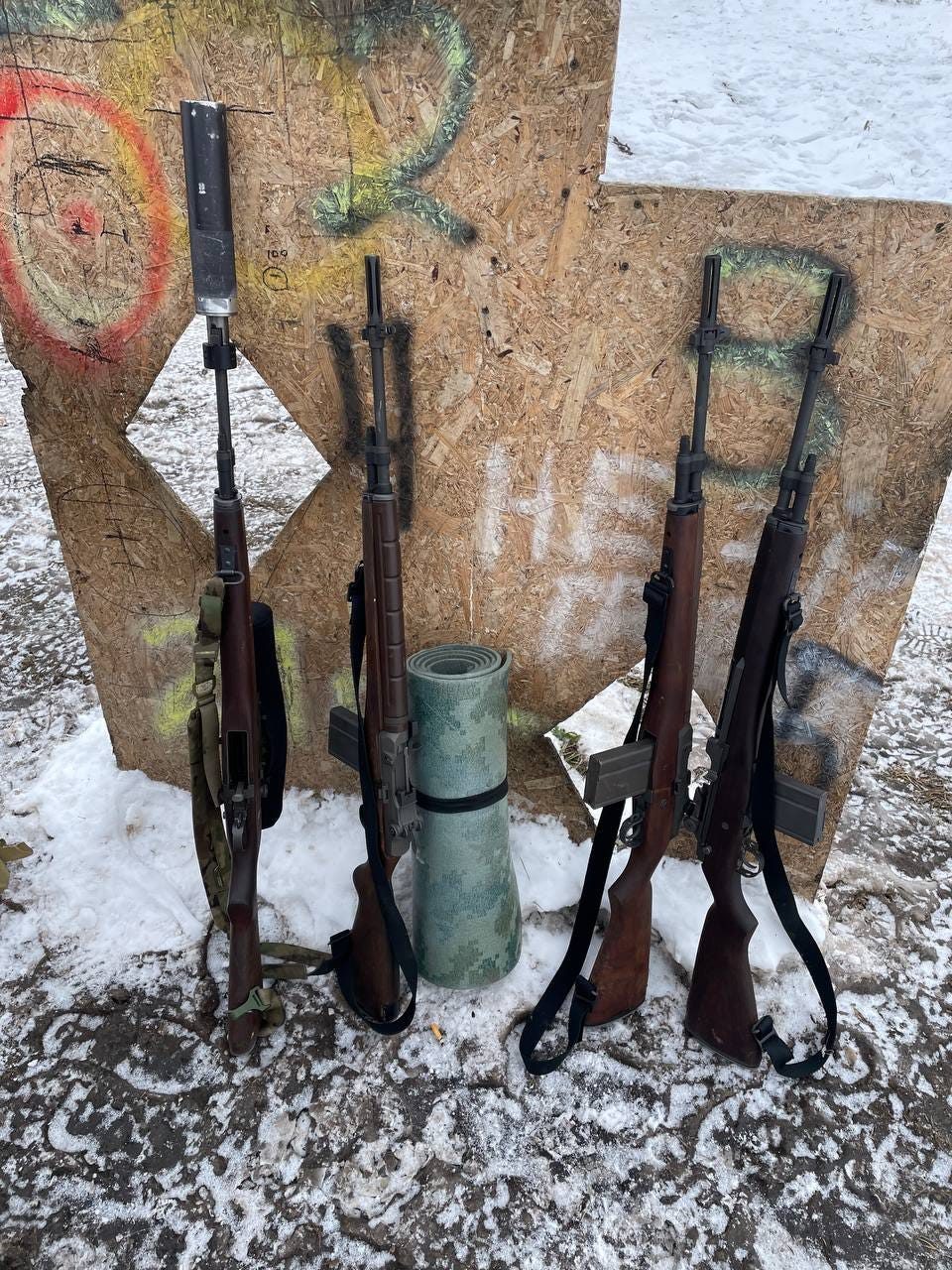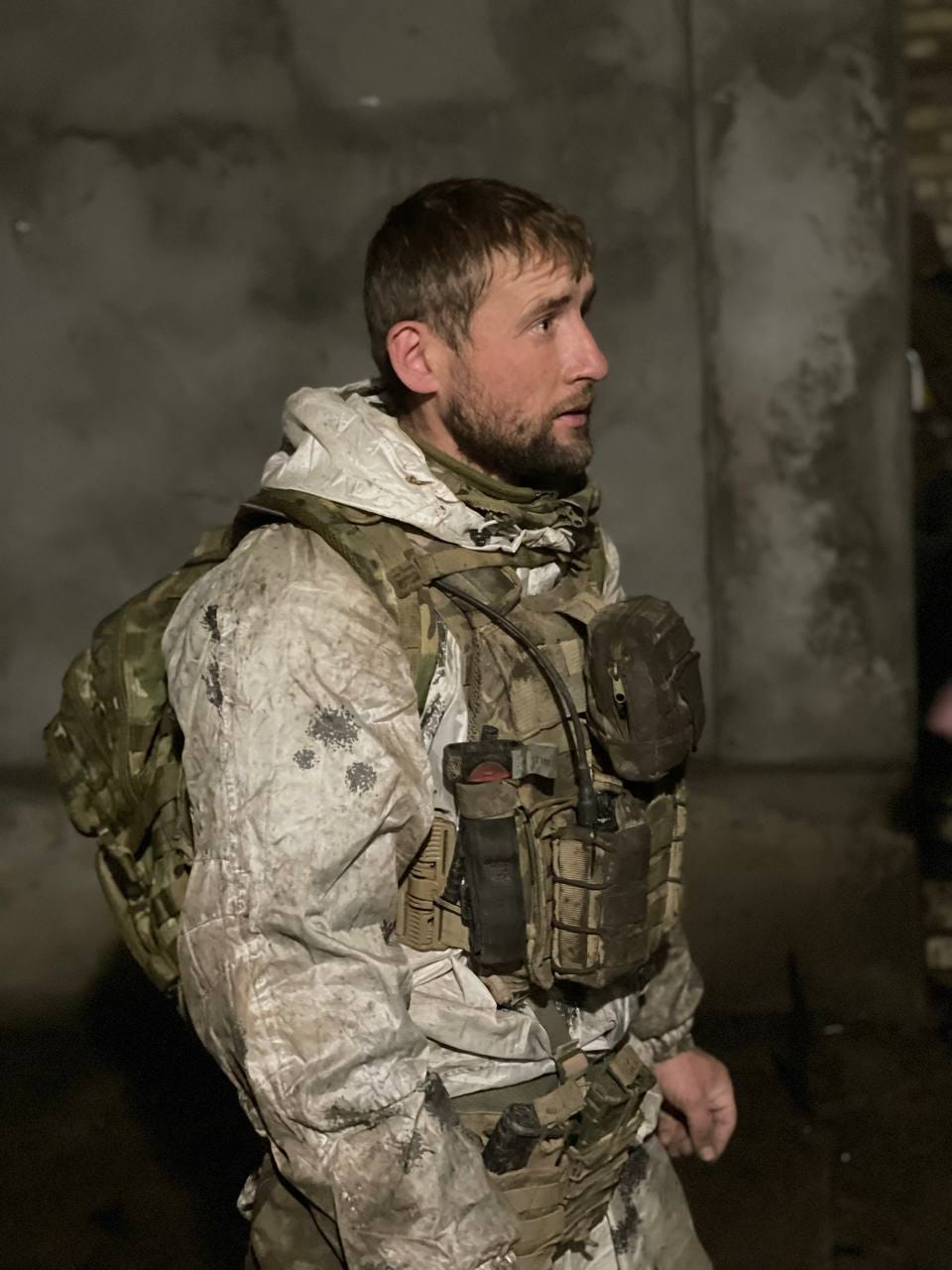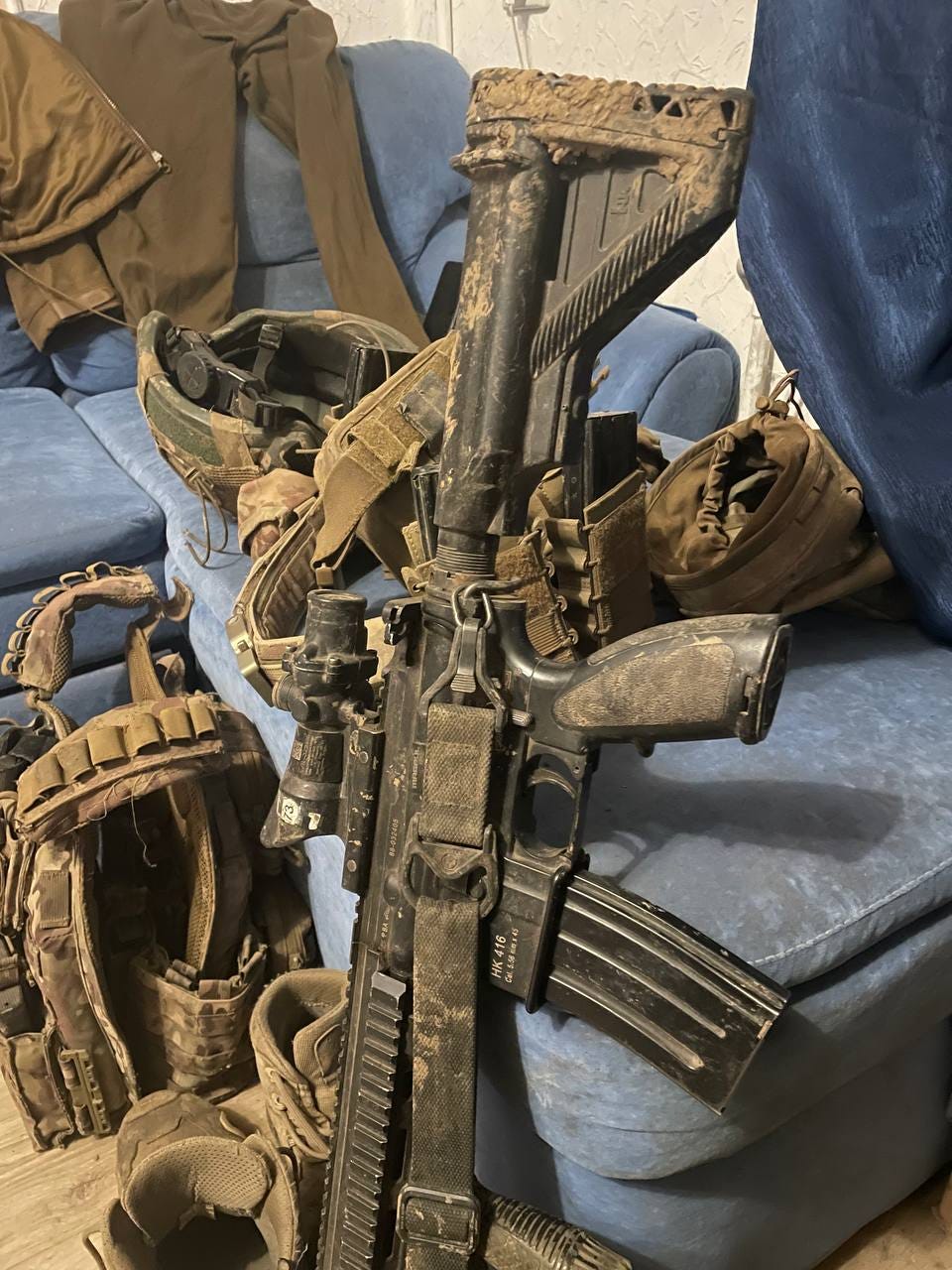Lessons I learned in a Ukrainian military safe house
Ross recounts the cold mornings translating for an elite Ukrainian reconnaissance unit; Myroslava walks us through the annual tulip-giving that is part of International Women’s Day in Ukraine!
Editor’s note: This Thursday, March 14th, The Counteroffensive is teaming up with the Kyiv Independent to hold an event on how to break through Ukraine fatigue. Join us this Thursday! Write to Oksana@counteroffensive.news to RSVP and for details!
Whenever I go to the Donbas, near the frontlines, I make a point to stop in with my friends on a Ukrainian reconnaissance team, some of whom I knew before the invasion.
They have a safe house where they rest and regroup in between missions.
I try to persuade myself that I do these trips not for mere adrenaline, or as an excuse for not fighting directly in the trenches.
So usually I visit the recce (pronounced reck-ie, for recon) house and spend days volunteering by translating for a couple of U.S. Marines at different shooting ranges.
Here’s what I’ve learned over the past two years over countless embeds with Ukrainian elite troops.
Snoring overheard late at night in the safe house.
War reveals character
People are the biggest discovery for me in this war. Their good or bad nature, and all the different shades of it. Through this war I have met some of the most unbelievable characters, the kind of people I thought that you could only see in books or movies.
The mornings near the frontlines are early, dark and cold. The days are long and wet. We wake up around 6 am, and by 7 or 8, I am picked up to go to a shooting range. We spend the whole day running in trenches, teaching the basics of assaults. When there are medics with us, we always try to teach some tactical medicine, so everyone is able to help himself and their brothers.
Here’s what I learned about the guys I trained with: being people of a good heart, they couldn't just ignore what was happening in Ukraine, and knowing that they had the required skills, they decided that they were going to live here, and pass on these skills, as long as it is needed.
They’ve been here now for more than two years, since the very beginning of the war, sacrificing their own personal lives and time, just to teach people day and night, with no breaks or holidays.
Just humble, hard work. Work without a salary, or promotions, or any future for you in it.
At this moment, my friends have managed to teach and instruct thousands of people, from numerous different units. I’ve been honored to share some time with them, and I have seen and felt the nature of their work, and what it does to the hearts and spirits of people.
There’s no time to mourn
Most of the people we trained are dead already.
Every time I arrive there, faces change.
This war has been nothing else but a conveyor of death.
Names and faces change faster than you are capable of remembering them, and for some individuals it even changes their perception in general. For these people, the value of life is never going to be the same as for a normal person.

And it also takes its toll. I feel this mental pressure: you get to know people, some of them you get to know very well. You train with them, and eat with them on a break, get to know their names and stories.
Then you get to hear a story about how some of them died. Sometimes for a good reason, sometimes just as another number of other casualties because of a ‘meat assault,’ or simply because of some officer’s stupidity.
It is war and I have seen numerous cases of everything mentioned above. But the feeling of discovering that someone you got to know is dead that fast, just a couple of days after you’ve been drinking tea and laughing with them in a cold forest, it is always the same.
And it is always sorrow and discouragement – the kind that questions why you’re doing all this in the first place. It is discouraging when your work is getting nullified by someone else’s stupidity, especially if this costs lives.
We need better, and more, weapons
Tim observed early in the war that as long as there was a twelve year old boy in Ukraine with a plastic butter knife, there would be resistance to Russian occupation.
But why would we want it to come to that?
One morning I arrived at the rifle range to help translate for marksmen who were training on long-range shooting. I learned they were using M14 rifles.
And don’t get me wrong, I firmly believe that this is a good weapon, with good ergonomics and precision. But a weapon that was produced in 1957, even when it is a quality piece of equipment. gives you limited opportunities on the battlefield.
On a larger scale Ukraine won’t be able to win war in the 21st century with weapons from the 20th. But for now we have what we have, and we train and fight with that.
The pace of war is dizzying
To live in a house where around 15 soldiers live constantly and only leave when they’re on duty is a charming experience, in some ways. Life in the house never stops, no matter the hour.
It is a really interesting contrast to observe, especially to civilian life with its sane life schedule, when you have time for activities, and time for full rest in the form of sleep.
In this war sleep is something ephemeral, some attribute from our previous life, because now the battle is not stopping even for a second. Day and night there are people who are going to observe, deflect assaults, bring supplies, evacuate wounded, and there is simply no option to hit pause.
I have seen the sheer numbers of people that go through the crucible of war, and it is scary. Most of those people aren't warriors from myths and legends, or some monsters bred for war, most of the people I meet there are simple civilians that have put on a military uniform and embraced their new role.
They weren’t made for war, but they made themselves so, as a sacrifice for a peaceful living for the rest of the country, and for the chance to regain old life, life without a war.
One was a dentist, another one had a successful business, and a friend of mine dropped out of university where he studied history with me. All of them did it because someone had to do it.
They dropped the plough and took the sword, because there was a need. And after days of training, there come nights of working, and when they come back from work it rarely looks nice. Wet, dirty, exhausted, mentally drained.
Coming back only to take a short break, recover, and get back into battle.
Friendly animals are worth their weight in gold
The average return from a mission rarely looks good, but when everyone comes back alive and well it is a huge slice of fortune.
The recce house gives you the only slice of warmth and comfort, a short rest before you have to return into the fields and forests.
Despite being so near to the fighting, I even started to see it as a safe and warm place, where I can get some rest after daily activities.
I was used to seeing new faces every time I visited, and on one of my last trips, I was pleasantly surprised to discover a new member of the recon unit that was looking after the house.
I couldn’t discover her actual name, as everyone there was calling her by a different title. But for sure she has changed the atmosphere in the house dramatically, and practically become a mascot of the house.
The house became better when the cat started to live with the boys. She brought a lot of warmth and laughter there, countless silly and funny moments.
And amidst all the madness that happens around here, this furry friend becomes the best therapy you can have.
AFTER THE PAYWALL: Dueling views from Ukraine’s allies on the concept of western troops deploying into the conflict zone. And Myroslava walks us through the Ukrainian experience of International Women’s Day! For our cat of conflict, the recce house’s feline chases a laser during a light moment for Ukrainian troops.
Keep reading with a 7-day free trial
Subscribe to The Counteroffensive with Tim Mak to keep reading this post and get 7 days of free access to the full post archives.









